2.0 Orthognathic Mini 90°L-Plate Video
2.0 Orthognathic Mini 90°L-Plate PDF
2.0 Orthognathic Mini 90°L-Plate Specification
| Name | Picture | Item No. | Specification |
| 2.0 Orthognathic Mini 90°L-Plate |   | RP3Z420L | 4 holes, 1.0mm, 20mm |
| RP3Z424L | 4 holes, 1.0mm, 24mm |
| RP3Z428L | 4 holes, 1.0mm, 28mm |
Advantages of XC Medico's Products
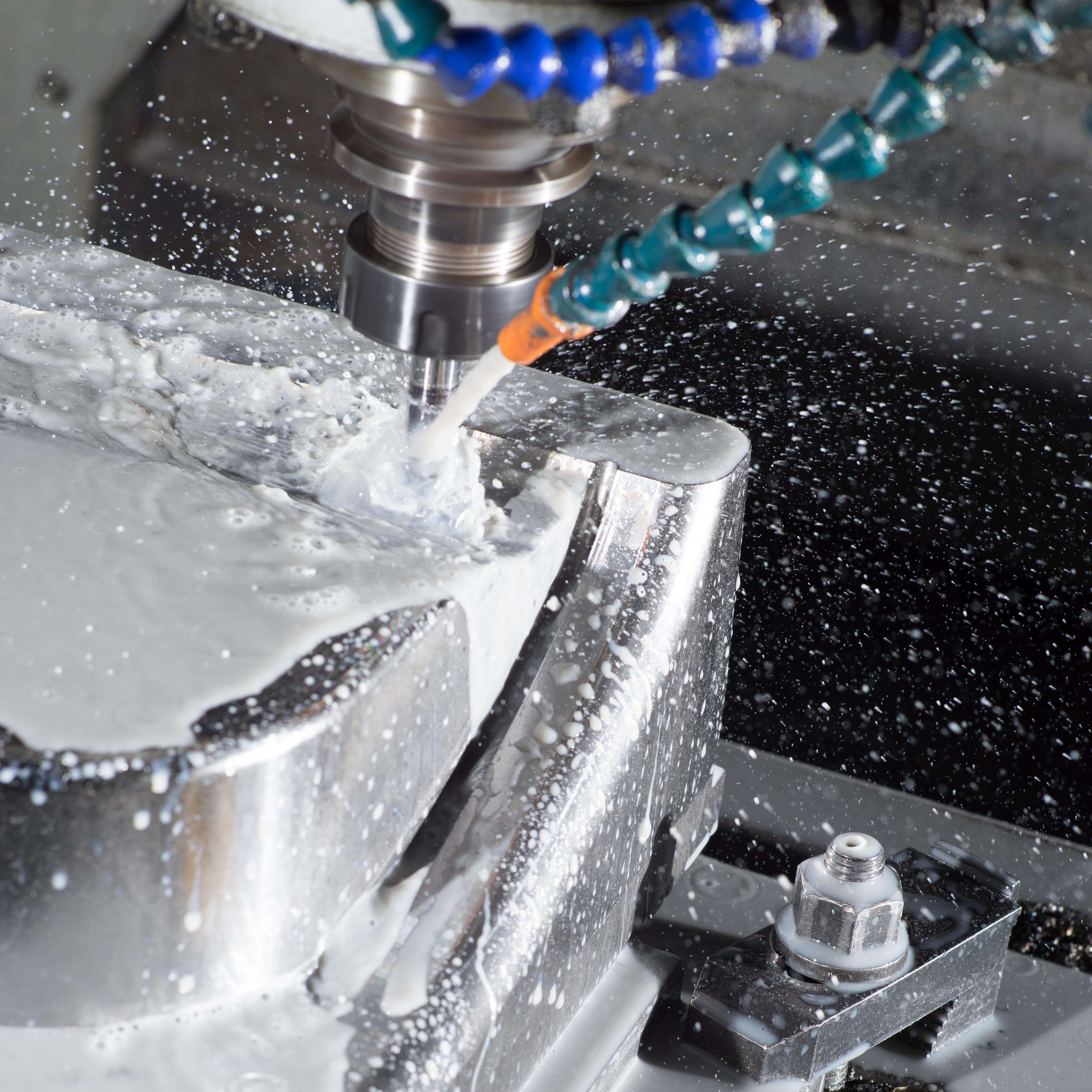
CNC Preliminary Processing
The computer numerical control technology is used to precisely process orthopedic products. This process has the characteristics of high precision, high efficiency, and repeatability. It can quickly produce customized medical devices that conform to the human anatomical structure and provide patients with personalized treatment plans.
| 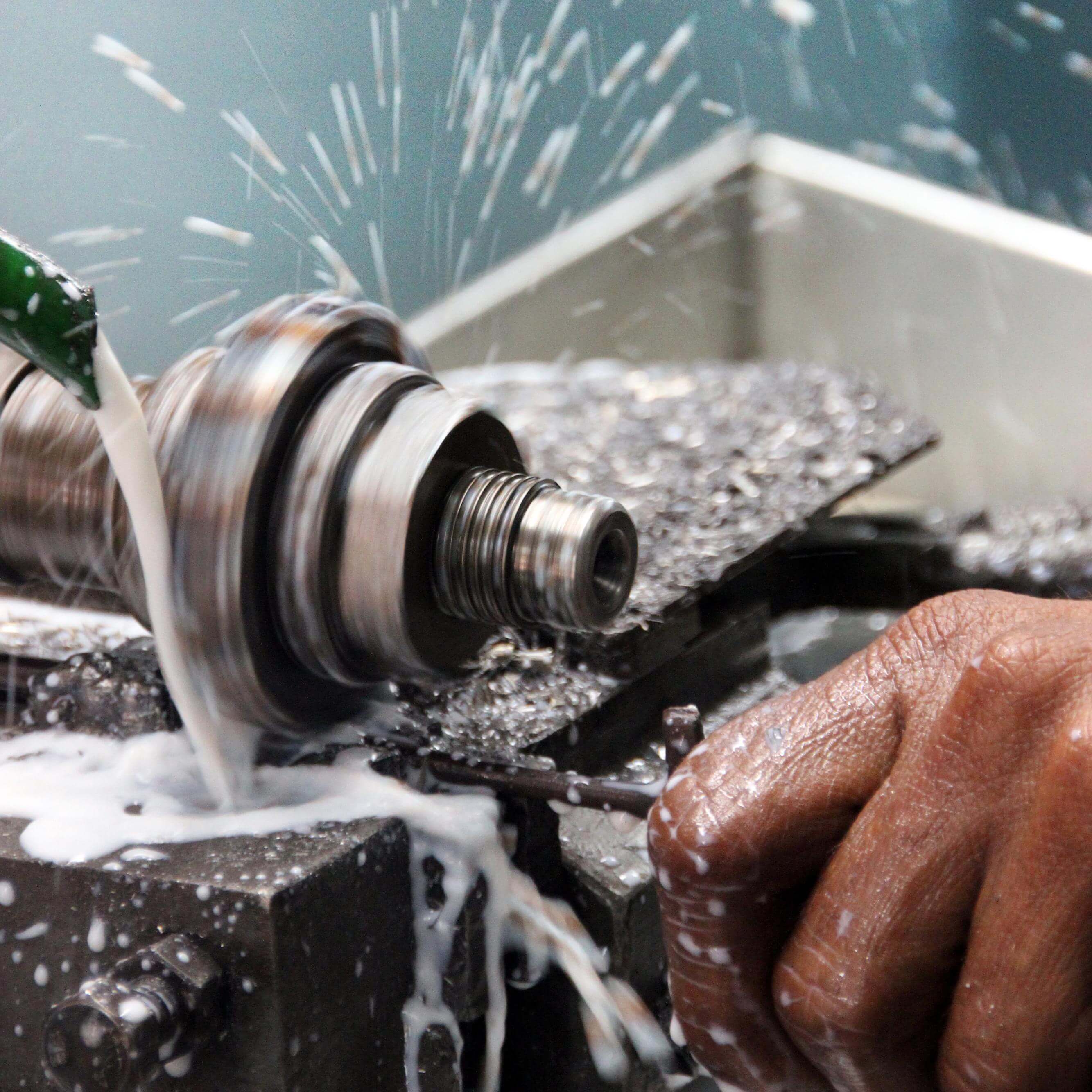
Product Polishing
The purpose of orthopedic products polishing is to improve the contact between the implant and human tissue, reduce stress concentration, and improve the long-term stability of the implant. | 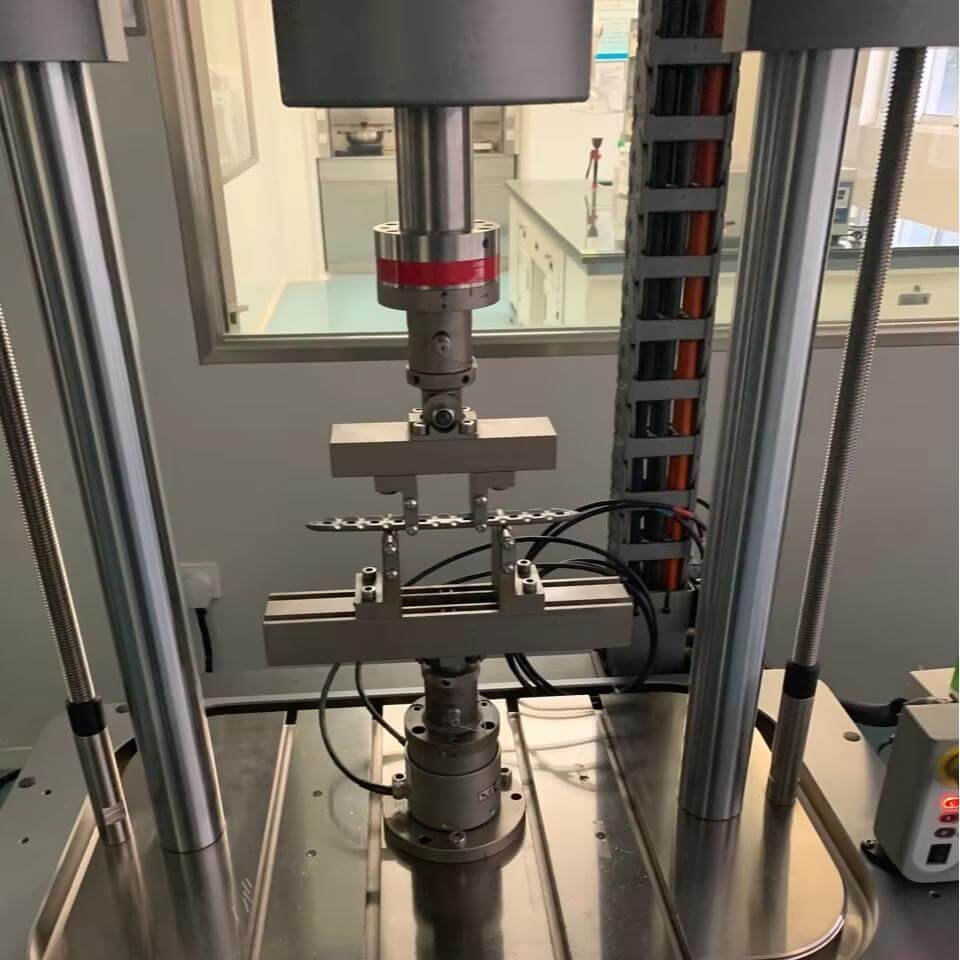
Quality Inspection
The mechanical properties test of orthopedic products is designed to simulate the stress conditions of human bones, evaluate the load-bearing capacity and durability of implants in the human body, and ensure their safety and reliability. |
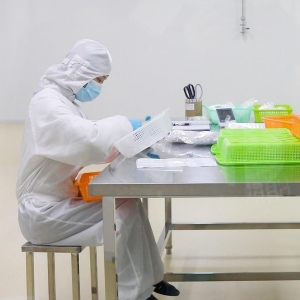
Product Package
Orthopedic products are packaged in a sterile room to ensure that the product is encapsulated in a clean, sterile environment to prevent microbial contamination and ensure surgical safety.
|  Product Warehouse Product Warehouse
The storage of orthopedic products requires strict in-and-out management and quality control to ensure product traceability and prevent expiration or wrong shipment. | 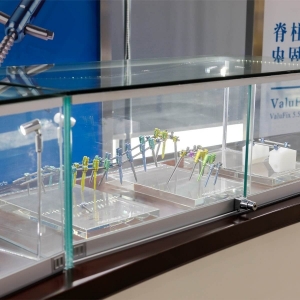 Sample Room Sample Room
The sample room is used to store, display and manage various orthopedic products samples for product technology exchanges and training. |
The Process To Cooperate With XC Medico
1. Ask Xc Medico Team For 2.0 Orthognathic Mini 90°L-Plate Product Catalog.
2. Choose Your Interested 2.0 Orthognathic Mini 90°L-Plate Product.
3. Ask For A Sample To Test 2.0 Orthognathic Mini 90°L-Plate.
4.Make An Order Of XC Medico's 2.0 Orthognathic Mini 90°L-Plate.
5.Become A Dealer Of XC Medico's 2.0 Orthognathic Mini 90°L-Plate.
The Advantages To Be A Dealer Or Wholesaler Of XC Medico
1.Better Purchase Prices Of 2.0 Orthognathic Mini 90°L-Plate.
2.100% The Highest Quality 2.0 Orthognathic Mini 90°L-Plate.
3. Less Ordering Efforts.
4. Price Stability For The Period Of Agreement.
5. Sufficient 2.0 Orthognathic Mini 90°L-Plate.
6. Quick And Easy Assessment Of XC Medico's 2.0 Orthognathic Mini 90°L-Plate.
7. A Globally Recognized Brand - XC Medico.
8. Fast Access Time To XC Medico Sales Team.
9. Additional Quality Test By XC Medico Team.
10. Track Your XC Medico Order From Start To Finish.
2.0 Orthognathic Mini 90°L-Plate : A Comprehensive Guide
Orthognathic surgery plays a pivotal role in the correction of jaw misalignments and fractures. The 2.0 Orthognathic Mini 90°L-Plate is a crucial implant used in such procedures, known for its stability and adaptability. In this comprehensive guide, we explore the key features, advantages, surgical applications, and future prospects of this implant, aimed at providing a better understanding for surgeons, patients, and medical professionals.
What is 2.0 Orthognathic Mini 90°L-Plate?
The 2.0 Orthognathic Mini 90°L-Plate is a specialized implant used in maxillofacial surgery, particularly for orthognathic procedures. This mini-plate, designed with a 90° angle, serves as a fixation tool to stabilize bone fragments during surgery. It is primarily used to align and reposition the bones of the mandible (lower jaw) and maxilla (upper jaw) to correct deformities or fractures.
Made from titanium or titanium alloys, the plate offers high strength, biocompatibility, and resistance to corrosion, making it suitable for long-term implantation. The "90°" in the name refers to the plate's design, which facilitates optimal angular support, ensuring secure fixation in challenging jaw surgeries.
2.0 Orthognathic Mini 90°L-Plate Features
90° L-shape
The distinctive 90° angle between the two arms of the plate allows for precise application to fractures and jaw realignment, offering optimal stability.
Miniature Size
The 2.0mm plate size ensures that the implant is minimally invasive, making it ideal for delicate surgical areas where tissue damage should be minimized.
Titanium Construction
Constructed from biocompatible titanium or titanium alloys, the plate is lightweight yet durable, ensuring long-term reliability without triggering allergic reactions.
Low Profile
The plate's thin and compact design reduces post-operative discomfort and minimizes visible scarring, ensuring both functional and aesthetic improvements.
Multiple Screw Holes
The plate includes several screw holes for precise and stable placement of screws, which enhances its ability to secure the jaw bones during healing.
Adaptability
The plate is designed to be easily adjustable, allowing the surgeon to shape and position it according to the patient's specific needs during surgery.
2.0 Orthognathic Mini 90°L-Plate Advantages
Superior Fixation and Stability
The 90° angle provides optimal mechanical leverage, which helps to maintain the stability of the jaw bones while they heal. This ensures that the repositioned bones stay in place, reducing the risk of misalignment or displacement during recovery.
Minimally Invasive Design
Due to its small size and low profile, the 2.0 Orthognathic Mini 90°L-Plate allows for less disruption to surrounding tissues during surgery. This minimizes patient discomfort and reduces the time needed for recovery, making it an attractive option for patients seeking a quicker return to normal activities.
Aesthetic Considerations
The low-profile nature of the implant ensures that the surgical site remains discreet, helping achieve better cosmetic outcomes, particularly in facial surgeries. This is especially important for patients undergoing aesthetic procedures to enhance facial appearance and jaw alignment.
High Biocompatibility
The plate's titanium construction guarantees biocompatibility, which means it is well-tolerated by the body and unlikely to cause rejection or allergic reactions. Titanium also offers excellent resistance to corrosion, which ensures that the implant will perform reliably over the long term.
Versatile Application
The 2.0 Orthognathic Mini 90°L-Plate is versatile and can be used for a wide variety of surgeries, including those related to fractures, misalignments, and jaw realignment in both the mandible and maxilla. Its ability to adapt to different surgical needs makes it an indispensable tool in the surgeon's arsenal.
2.0 Orthognathic Mini 90°L-Plate Treatment of Fracture Types
Mandibular Fractures
Trauma to the mandible can result in fractures that affect the functionality and aesthetics of the jaw. The 2.0 Mini 90°L-Plate provides stable fixation to realign fractured bone fragments.
Maxillary Fractures
The plate is equally effective for fractures of the upper jaw, which can be caused by accidents or congenital conditions. The implant helps restore alignment and prevent further complications.
Orthognathic Surgery
In addition to trauma-induced fractures, the plate is also employed in surgeries designed to correct congenital jaw deformities like retrognathia (receding lower jaw) or prognathia (protruding jaw), improving both functionality and appearance.
Osteotomies
The plate aids in stabilizing the jaw after osteotomy procedures, which involve cutting and repositioning the bone.
Dental Repositioning
In certain cases, the plate helps realign the jawbones to facilitate proper occlusion and optimize dental treatment outcomes.
Risks of 2.0 Orthognathic Mini 90°L-Plate Surgery
Infection
There is always a risk of post-operative infection at the incision site or around the implant. Prophylactic antibiotics are typically administered to reduce this risk.
Nerve Injury
Because the jaw area is rich in nerves, there is a possibility of nerve damage during surgery. This can result in numbness, tingling, or permanent facial weakness, though such complications are rare.
Malposition of the Plate
Incorrect placement of the plate could result in improper alignment of the jawbones, leading to malocclusion (misalignment of teeth) and the need for corrective surgery.
Implant Failure
Although rare, implant failure can occur due to stress on the plate or if the screws become loose over time, potentially requiring revision surgery.
Scarring
While the plate is designed to minimize visible scarring, it is still possible for patients to experience some level of post-operative scarring or tissue irritation, particularly if healing is compromised.
2.0 Orthognathic Mini 90°L-Plate Future Marke
The demand for advanced, minimally invasive surgical techniques, particularly in the field of maxillofacial surgery, is expected to drive the future market for 2.0 Orthognathic Mini 90°L-Plates. As the focus on patient outcomes, aesthetics, and recovery times intensifies, this plate's small size and efficient design make it an ideal choice for modern surgeries.
In the coming years, we expect continued growth in the global market for jaw surgery devices, driven by the increasing prevalence of trauma-related fractures, congenital deformities, and the demand for aesthetic facial surgeries. Furthermore, technological advancements in 3D printing and customized implant designs may lead to even more tailored solutions for patients requiring orthognathic procedures, making this plate a key component in such innovations.
Summary
The 2.0 Orthognathic Mini 90°L-Plate is a reliable, versatile, and minimally invasive implant used in a wide range of jaw and facial surgeries. Its ability to stabilize fractured or misaligned jaw bones, combined with its biocompatibility, compact size, and high stability, makes it an excellent choice for orthognathic procedures. While there are certain risks associated with the surgery, the benefits of this implant, including improved aesthetic outcomes and reduced recovery times, make it a valuable tool for both surgeons and patients. As the demand for maxillofacial surgeries continues to grow, the 2.0 Orthognathic Mini 90°L-Plate will likely play a key role in shaping the future of jaw reconstruction and correction.
Warm reminder: This article is for reference only and cannot replace the doctor's professional advice. If you have any questions, please consult your attending physician.
English
Русский
简体中文
繁體中文
العربية
Français
Español
Português
Deutsch
italiano
日本語
한국어
Nederlands
Tiếng Việt
ไทย
Polski
Türkçe
አማርኛ
ພາສາລາວ
ភាសាខ្មែរ
Bahasa Melayu
ဗမာစာ
தமிழ்
Filipino
Bahasa Indonesia
magyar
Română
Čeština
Монгол
қазақ
Српски
हिन्दी
فارسی
Kiswahili
Slovenčina
Slovenščina
Norsk
Svenska
українська
Ελληνικά
Suomi
Հայերեն
עברית
Latine
Dansk
اردو
Shqip
বাংলা
Hrvatski
Afrikaans
Gaeilge
Eesti keel
Māori
සිංහල
नेपाली
Oʻzbekcha
latviešu
অসমীয়া
Aymara
Azərbaycan dili
Bamanankan
Euskara
Беларуская мова
भोजपुरी
Bosanski
Български
Català
Cebuano
Corsu
ދިވެހި
डोग्रिड ने दी
Esperanto
Eʋegbe
Frysk
Galego
ქართული
guarani
ગુજરાતી
Kreyòl ayisyen
Hausa
ʻŌlelo Hawaiʻi
Hmoob
íslenska
Igbo
Ilocano
Basa Jawa
ಕನ್ನಡ
Kinyarwanda
गोंगेन हें नांव
Krio we dɛn kɔl Krio
Kurdî
Kurdî
Кыргызча
Lingala
Lietuvių
Oluganda
Lëtzebuergesch
Македонски
मैथिली
Malagasy
മലയാളം
Malti
मराठी
ꯃꯦꯇꯥꯏ (ꯃꯅꯤꯄꯨꯔꯤ) ꯴.
Mizo tawng
Chichewa
ଓଡ଼ିଆ
Afaan Oromoo
پښتو
ਪੰਜਾਬੀ
Runasimi
Gagana Samoa
संस्कृत
Gaelo Albannach
Sepeti
Sesotho
chiShona
سنڌي
Soomaali
Basa Sunda
Wikang Tagalog
Тоҷикӣ
Татарча
తెలుగు
ትግንያውያን
Xitsonga
Türkmençe
संस्कृत
ئۇيغۇرچە
Cymraeg
isiXhosa
ייִדיש
Yorùbá
isiZulu


















 Product Warehouse
Product Warehouse Sample Room
Sample Room







